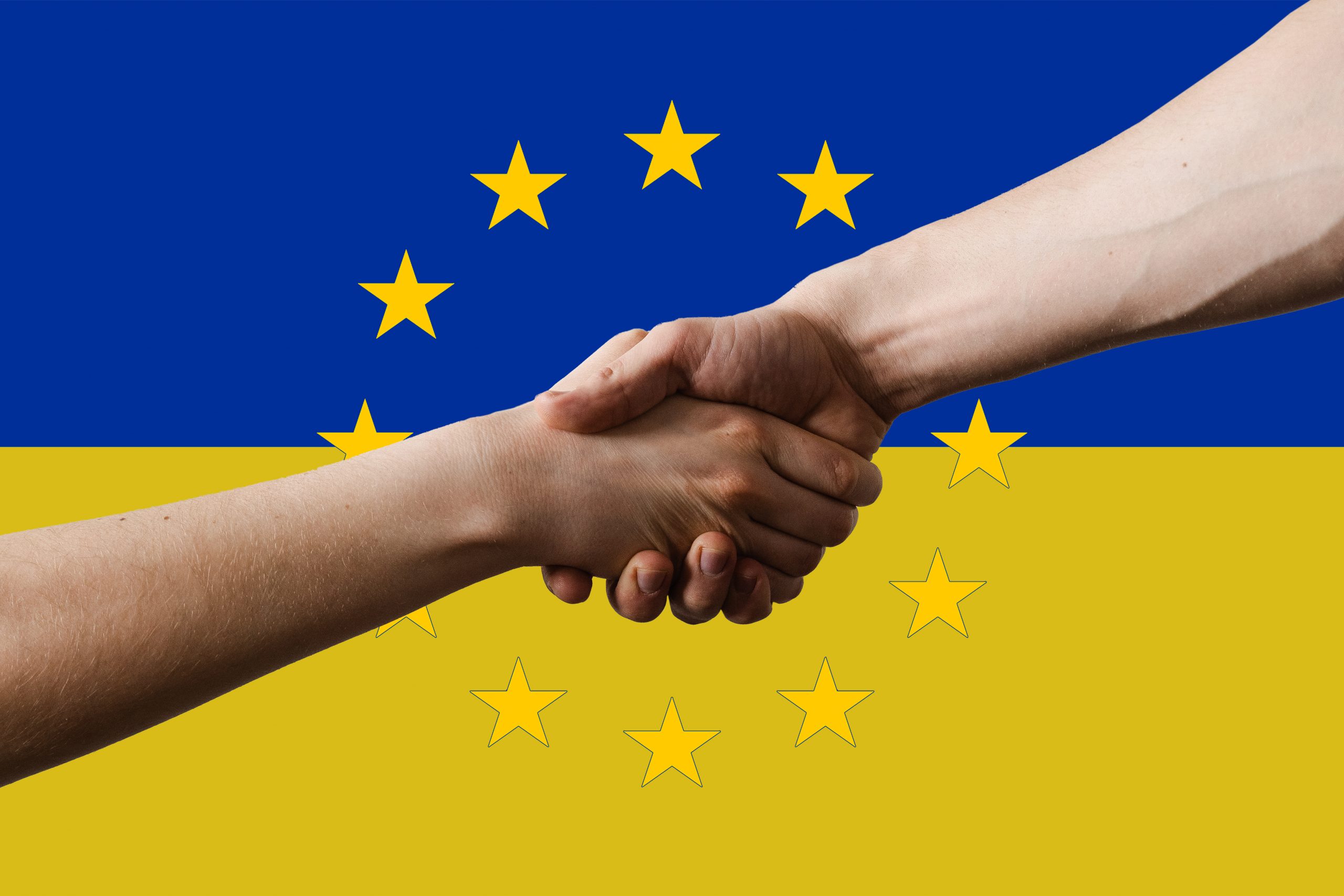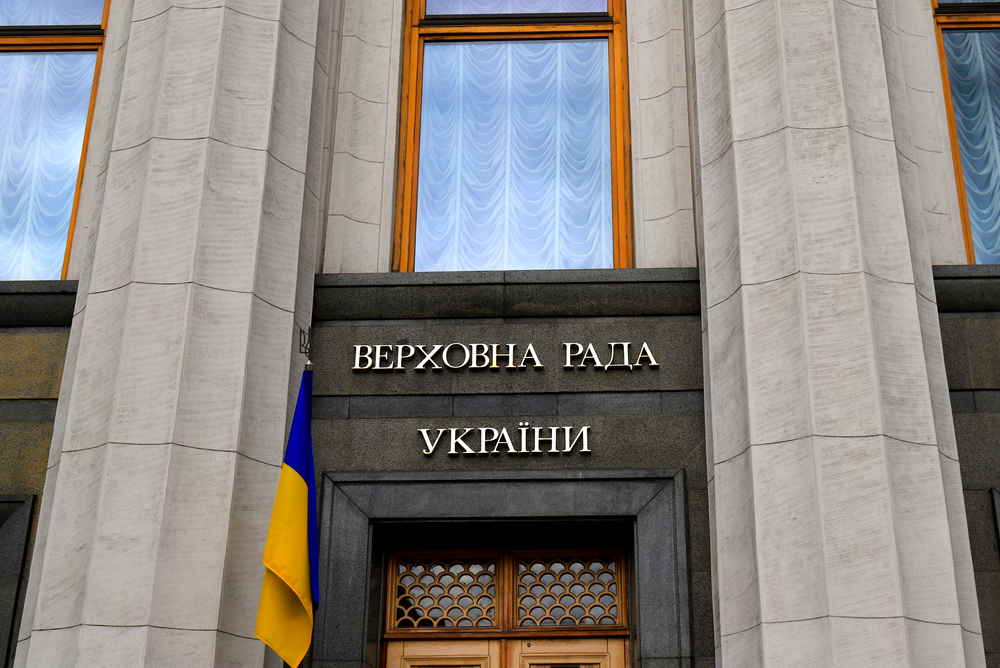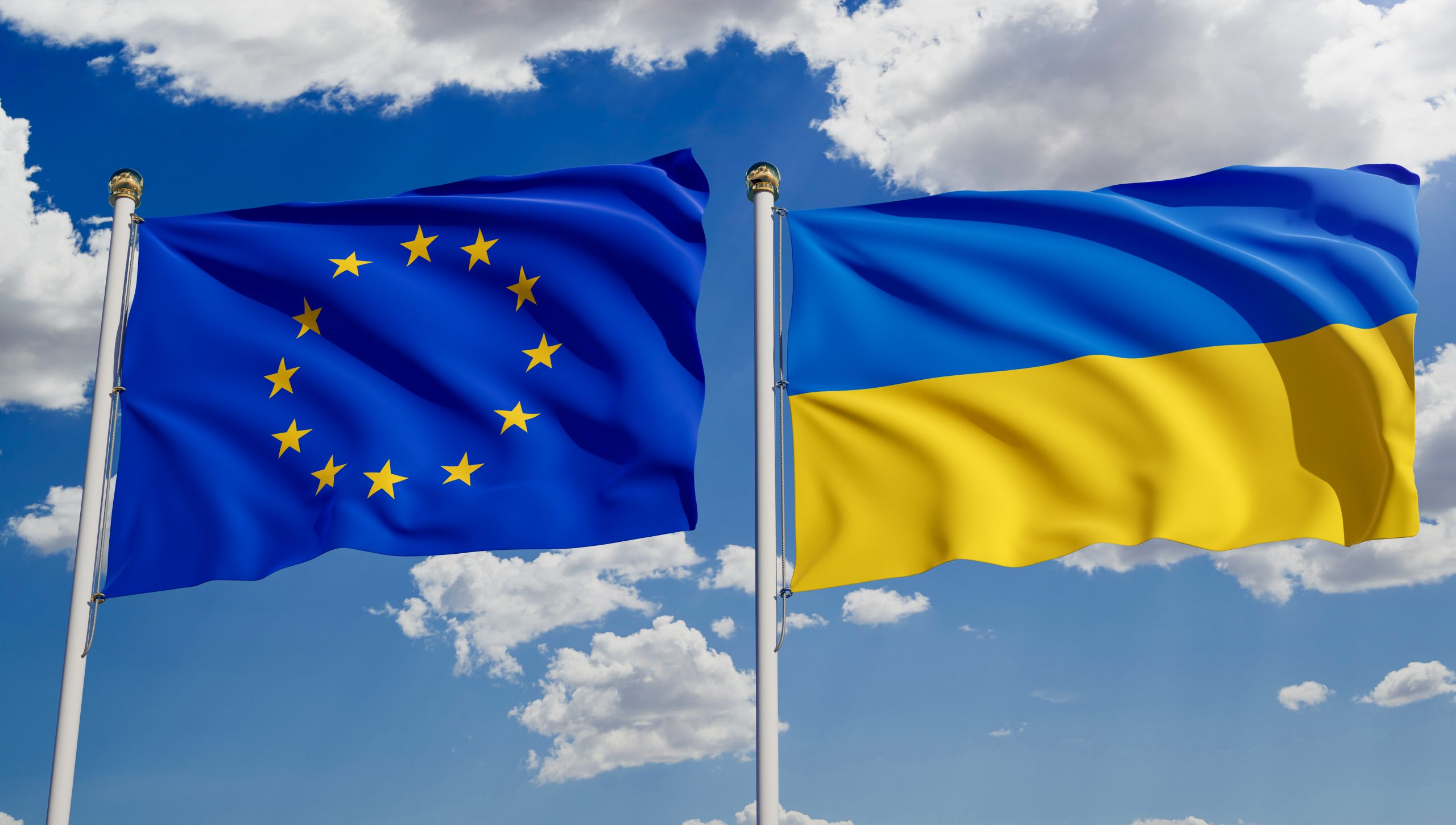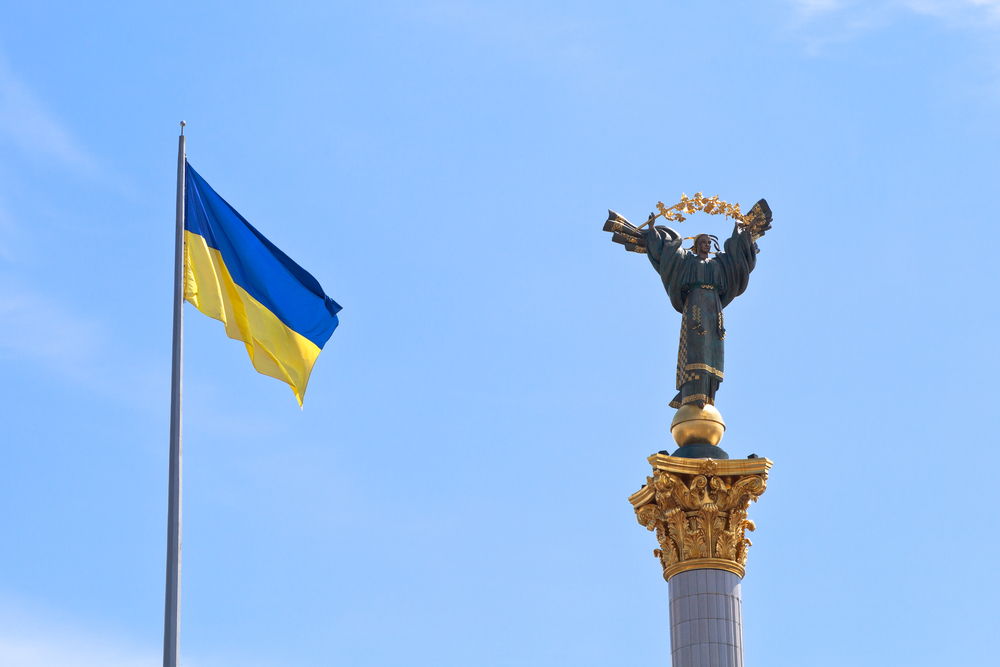Ukraine’s gradual integration into the EU is ongoing, but in the rapprochement with NATO, Kyiv is not taking advantage of the current opportunities, says the Chairman of the New Solutions Center, Extraordinary and Plenipotentiary Ambassador Kostiantyn Yelisieiev. His name is well-known in the European institutions and to all those who follow Ukraine’s steps towards Europe. Mr. Yelisieiev, a career diplomat with 30 years of experience, has been the Deputy Representative of Ukraine to the EU, and between 2010-2015 was Ukraine’s representative to the EU. Until May 2019 Mr. Yelisieiev was Deputy Chairman of the Presidential Administration of Ukraine. In an interview with Promote Ukraine, Kostiantyn Yelisieiev shared his thoughts on the foreign policy of the new Ukrainian President.
Mr Yelisieiev, did the foreign policy of Ukraine change during the Presidency of Volodymyr Zelensky? Has this policy become less pro-European, less pro-NATO, and more pro-Russian?
I wouldn’t say so. Over the past five years, Ukraine has laid a solid foundation for the development of priority areas of foreign policy. This is about EU and NATO integration. And this was enshrined in the Constitution. The president, whoever he is and whether he wants to or nor, must comply with constitutional provisions. Therefore today the rhetoric of the new administration is in line with these requirements of the Constitution, in line with the mood of the Ukrainian people. The Constitution envisages Ukraine’s gradual integration into the EU and NATO.
But there is one problem: things are easier said than done. We would like to see integration in practice, but words do not always become reality. Here, words do not always become reality. In European integration, we see more or less a continuation of the course of the fifth president, but regrettably, with NATO we do not use the opportunities that Ukraine has had in the last few months. In particular, I am concerned that, in fact, Kyiv’s course towards NATO integration has stalled. It is a pity that the current opportunities were not used, in particular also at the London Summit of the North Atlantic Treaty Alliance. Unhappily, the Ukrainian team dropped from its rhetoric the phrase NATO Membership Action Plan. And this cannot but disturb.
Second. I do not criticise, I simply advise the new administration to call a spade a spade. We have to make clear in our rhetoric, in our statements, who is the aggressor. Unfortunately, more and more people say that there is a conflict or war in the Donbas, and they avoid acknowledging direct Russian aggression, regular Russian troops in the Donbas, which are guided from Moscow. Our partners also notice that, and it does not reinforce our position on strengthening the pro-Ukrainian international coalition and prolonging sanctions. I would like to repeat that for the last five years we followed the sanction policy and it is very important to keep it in the future.
Do you think Ukraine could apply for EU membership in the near future?
Never say never. EU membership for Ukraine is quite a real possibility,but in order to achieve this in the next few years we need to do everything to harmonize Ukraine’s legislation to the maximum with the EU standards and to implement the Association Agreement with the European Union as effectively as possible, which is essentially a roadmap for European integration of Ukraine. According to the Treaty of Lisbon, we have every right to make such an application. I think, if there is effective work and acceptable pace of internal reforms, then it is quite realistic to apply for EU membership in 2023. But this is under the condition that we do not slow down the pace of integration.
How can Brexit affect Ukraine’s relations with the EU?
Someone might disagree with me, but Brexit is a dramatic page in the history of the European Union. This is not a tragedy yet, but I really hope that the EU will solve this difficult situation and become stronger. I rely heavily on the initiative of the European Union to launch a pan-European conference on the future of the EU under new conditions. I think this event might be successful if not only EU members, but also other countries, neighbours, and Ukraine, in particular, are involved in the discussion. Because if we talk about the future of the EU, it cannot exist outside the general picture of Europe and without taking into account Ukraine. That’s why I very much hope that Kyiv will be involved in this discussion anyway.
In my opinion, sooner or later British citizens will realize that they have made an irrevocable mistake with Brexit. And I think that there will be the next stage. In a few years, a new trend may emerge – the integration or reintegration of Britain into the European Union. Brexit does not work in favour of the EU or the UK, I suppose, but of third parties who are not interested in promoting pan-European integration goals and democratic processes.
What about Ukraine? How can Brexit affect relations between Brussels and Kyiv?
There’s even a trend of talking about Ukraine replacing the UK in the EU.
Even the names are similar!
Yes, absolutely. There is some optimism in these words. I also count on that. But I think that Britain has always strongly supported Ukraine within the EU. I very much hope that this position won’t change, even after the United Kingdom leaves the European Union. But unfortunately, in the next few years, the country will face problems of post-Brexit, and in my opinion, London will not support Kyiv very actively.
This is a key challenge for our relationship. And second, I really hope that a bilateral agreement between Ukraine and Britain on political and trade and economic cooperation will be concluded quickly, as relations between the two countries should now be governed by a bilateral agreement, and not the association agreement with the EU.
Mr Yelisieiev, what do you think about the outcome of the last Normandy Format summit in Paris? Do you feel that there were some secret arrangements that are now affecting the events?
Even after the summit, there were different opinions on the results. Who was the winner, whether there was a draw. I have always refrained from clear definitions. I have always believed and believe that we will see results later. The summit was six weeks ago, and we can see that many of the provisions of the summit have not been implemented.
The most painful thing for us is that a ceasefire in the Donbas was not introduced before 31 December 2019. Unfortunately, the Russians continue to kill Ukrainians in the Donbas. In the last three weeks alone, regrettably, 12 Ukrainian heroes have been killed and several dozens injured. This figure is higher than for the same period in 2019. I can also say that some chances in a hostage exchange weren’t used. I believe that a hybrid exchange took place when Ukraine was forced to release people who had nothing to do with the situation in the Donbas. They released those Berkut people who apparently were involved in the Maidan tragedy.
Today, especially after the Paris summit, Russia considers itself as a winner. I am not very happy about that, and in fact there is an international rehabilitation of Putin and his regime. It is a pity that he is not as toxic now as he was even six months ago. Unfortunately, the new Ukrainian authorities contributed to the policy of conciliation with the aggressor and Putin’s “detoxification” policy. (Detoxification is a return to normal life, a perception by society and leaders, in particular, in the West – PU.)
For example, if the Ukrainian president congratulates Putin on New Year’s Day, why can’t Chancellor Merkel or President Macron do so? If Ukraine refuses to call the Kremlin an aggressor, why should it be called so by our European partners? If the European partners impose sanctions due to illegal annexation of Crimea and the actual occupation by Russia of the Azov and the Kerch Strait, and the Ukrainian side does not impose such sanctions, then why should the Europeans continue to enforce sanctions?
Finally, I would like to repeat another phenomenon of the new administration. They initiated a series of criminal cases against the fifth President Petro Poroshenko, in particular, for signing the Minsk agreements and for ordering Ukrainian ships to move from the port of Odesa to the port of Mariupol. So, the international courts have clearly recognized the sovereign right to move ships, but the Ukrainian authorities have opened criminal cases. Of course, this all plays in the hands of Russia and does not strengthen Ukraine’s position in the settlement process at all, it does not create a positive background for real restoration of peace in the Donbas.
Interview by Natalia Richardson






 UA
UA FR
FR DE
DE






